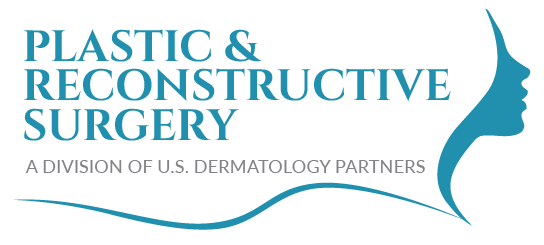If you’re thinking about a facelift, it’s important to know that every person ages differently, and your best resource is going to be a cosmetic surgeon like Dr. Sam DeVictor of Plastic & Reconstructive Surgery – a division of U.S. Dermatology Partners. According to Dr. DeVictor, “We talk about average ages for facelifts, but at the end of the day, each person’s needs are different. During a consultation visit, we’ll discuss your goals and concerns and find the right treatment for you – be it a facelift or any other surgical option.” In this blog, you can learn more about the ideal age for you to receive a facelift and what you can expect from this surgical option.
The Timing of a Facelift: An Overview
Youthful facial features look firm and lifted. Over time, facial structures settle and sag, leading to a need for treatments to lift and smooth the features to restore a youthful appearance. Facelifts are advanced cosmetic surgery procedures used to physically lift the face. Most patients will seek a facelift between the ages of 40 and 60. However, determining the best age for a facelift is really a personal decision. It involves considering the right type of facelift, the amount of time results last, and overall goals. Throughout the rest of this blog, we’ll discuss the different types of facelifts and how they work, factors that contribute to determining the ideal age to receive a facelift, and how cosmetic surgeons can help you understand your surgical treatment options and choose the best solution to address your needs and goals.
Understanding Facelifts and How They Work
A facelift is a cosmetic surgery procedure used to lift facial structures that sag with age. According to Dr. DeVictor, “Many patients think a facelift is only one thing, but there are actually numerous different types of surgical facelifts. They all have similar end goals – to lift facial features, but the specific structures that are shifted will vary based on the type of facelift. The extent of improvement and length of time results last differ based on the type of facelift. From mini facelifts that shift just the shallow layers of facial tissue to deep plane facelifts that adjust the skin, underlying fascia, and other structures, facelifts vary dramatically. Understanding the difference in results will be an important part of the decision-making process.”
If you’re not sure that a facelift is right for you, consider these common reasons why people seek facelifts before consulting with a cosmetic surgeon:
- They want to look and feel younger.
- They want to improve facial symmetry.
- They want to increase their self-confidence.
- They want to lift sagging skin.
- They want to diminish the appearance of deep lines and wrinkles.
- They want to smooth the face and neck.
- They want to reposition or reshape fat deposits.
Factors Determining the Ideal Age for a Facelift
If you relate to any of the common facelift goals in the previous section, you may want to discuss facelifts and other surgical treatment options with a plastic surgeon regardless of your age. Below, Dr. DeVictor outlines the questions patients should ask themselves when trying to determine the ideal age to receive a facelift:
- How long do you expect results to last? – The results of most facelifts, even deep plane facelifts, last about ten to fifteen years since we continue to age. That means you may need to invest in retreatment later in life if you receive a facelift at a younger age.
- Are you interested in a subtle improvement or are you looking for dramatic results? – Those who choose to proceed with a facelift when they’re younger will not usually see an extreme difference in appearance. Instead, they’ll see more subtle changes. Facelifts for older adults tend to deliver more dramatic improvements.
- How is your overall health? – Any surgery means risk, so healthier people are more likely to successfully and safely receive surgery. Those who have underlying health conditions may be at greater risk for serious side effects like infection.
- Have you had bad surgical experiences in the past? – If you’ve had an adverse reaction to anesthesia, difficulty healing following surgery, or other common surgical complications, be sure to discuss this with your surgeon and take it into consideration before moving forward with a facelift.
- Do you feel financially stable enough to make the necessary investment? – As an elective procedure, facelifts will not typically be covered by insurance or other benefits, so it’s important to discuss the overall costs of this procedure with your surgeon before moving forward. You’ll want to discuss the costs of the surgery itself, anesthesia, hospital or surgical clinic fees, follow-up treatments, and other related factors with your plastic surgeon before scheduling a facelift. Don’t forget to ask about the cost of retreatments and revisions later if you’re moving forward with a facelift at a younger age.
Dispelling the Myth of the ‘Average Age’ for a Facelift
When it comes to the average or right age for a facelift, Dr. DeVictor says, “On average, patients choose to move forward with a facelift most often in their mid to late 50s. However, it’s important to understand that every person ages differently, so some people may want to receive a facelift when they’re younger or older. It’s a very personal decision, and you should carefully consider your options with a trained professional before moving ahead. At the end of the day, there’s no single ideal age for everyone who wants to get a facelift, but there may be an ideal age for you to receive a facelift.”
Making an Informed Decision for Your Facelift
Before you move forward with a facelift or any surgical procedure, it’s essential to make sure you have all the information you need to make the right choice for your specific needs. If that’s a facelift, a cosmetic surgeon can prepare you for this procedure and everything it entails. Even more importantly, they can help you understand how a facelift will address your specific concerns and explain exactly what will happen during your procedure.
Consult a Skilled Plastic Surgeon
If you’re ready to schedule a consultation with a skilled plastic surgeon, don’t hesitate to get in touch. One of our team members will be happy to answer your questions and work with you to schedule an appointment with one of our skilled plastic surgeons to discuss facelifts and other surgical treatment options.

